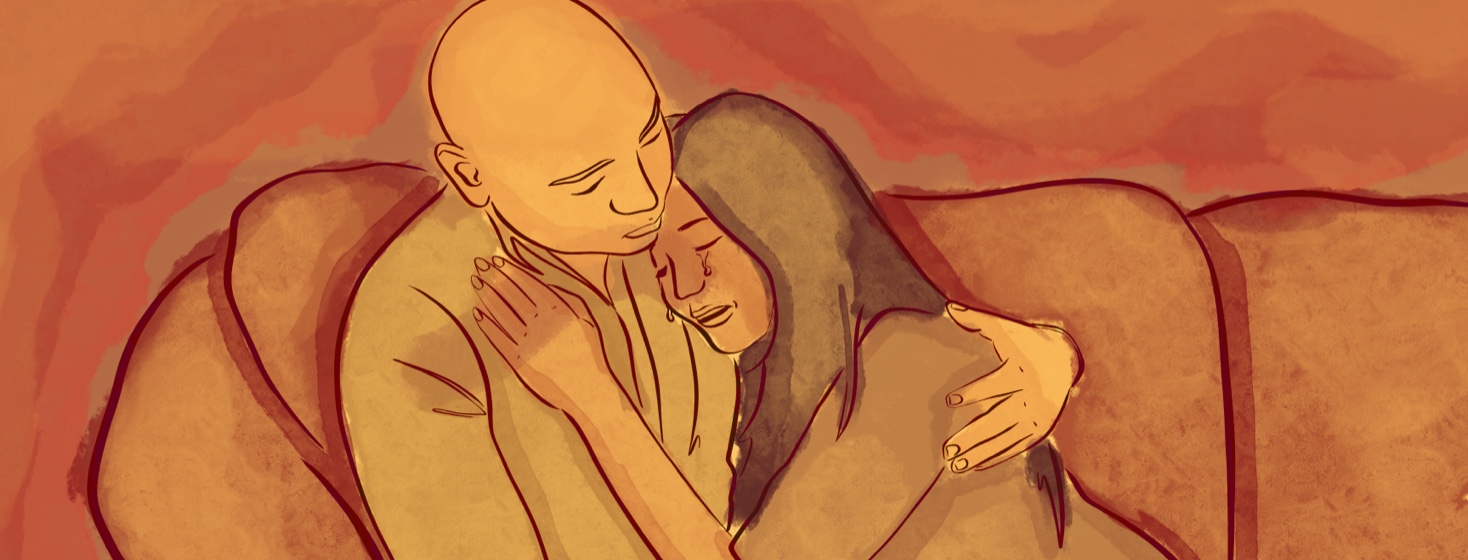Vicarious Trauma and Supporting Someone With Endometriosis
As I have written about previously, endometriosis may cause trauma in a person as a result of the severe pain, the impact it has on a person’s career, relationships, and security, and in the form of medical trauma.
Medical trauma can result from a lengthy diagnosis period, not being believed and feeling unheard, and the treatment of the condition, which can involve invasive surgery and strong pain medication.1
This trauma has secondary, or in-direct, effects for those with endometriosis, such as higher instances of depression, anxiety, and self-harm, and for those who support people with the condition.2 One way that trauma can affect the latter is a phenomenon termed ‘vicarious trauma’.
What is vicarious trauma?
Vicarious trauma, also known as secondary trauma, is trauma created through indirect exposure to traumatic events. This is something more often faced by counselors, therapists, and doctors, but it can affect anyone who has a significant relationship with someone with trauma.3
This could be a result of supporting someone who has experienced trauma from their endometriosis and, as suffering from trauma may make caring for your loved one more difficult, it’s important to know what to look out for and how to avoid it.
Vicarious trauma is widely recognized and taken very seriously by people in medical and mental health professions, and they are advised to seek professional help for it, so there is no reason why it shouldn’t be taken seriously by those close to people with chronic illnesses as well.
Symptoms of vicarious trauma
Symptoms of vicarious trauma differ from person to person, but here are some general symptoms you should be aware of:
- Emotional symptoms such as irritability, anxiety, or sadness.
- Behavioral symptoms such as isolation, increase in alcohol or substance consumption, changes in eating habits, and difficulty sleeping.
- Physiological symptoms such as headaches, rashes, ulcers, or heartburn.
- Cognitive symptoms such as difficulty concentrating, remembering, or making decisions.
- Spiritual symptoms such as a loss of hope, a decreased sense of purpose, and feelings of disconnect from others and the world in general.
Preventing medical trauma
To avoid developing vicarious trauma, self-care is important. This is different for everyone, but it may include things like journaling, being creative, spending time with loved ones, exercise, and meditation.
If you are already experiencing these symptoms, perhaps it’s time to get help. This can be in the form of getting help with supporting your loved one with endometriosis, and professional help from a counselor or therapist.
We can’t support the people we love if we aren’t at our best, so it’s important to take your well-being as seriously as that of your loved ones.

Join the conversation